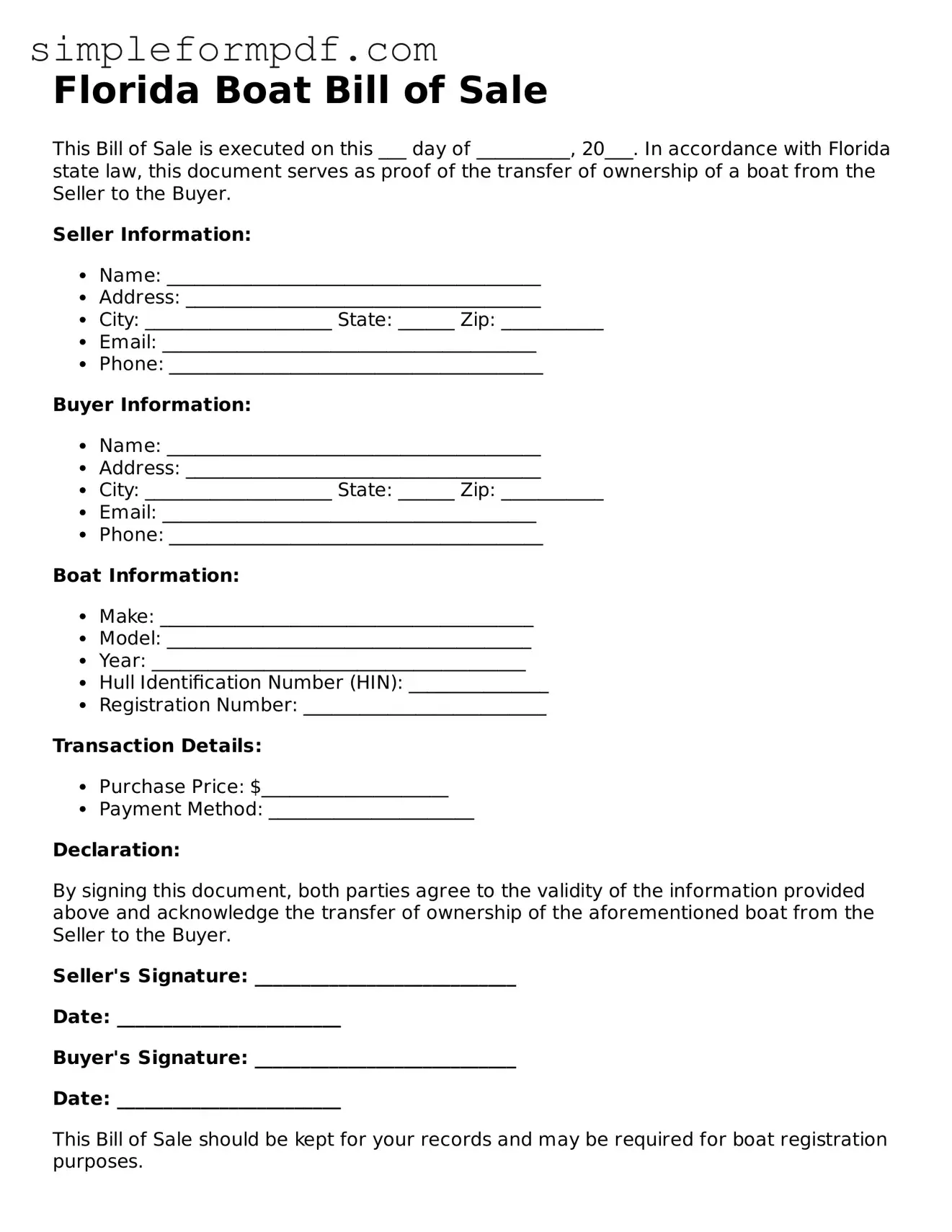Free Boat Bill of Sale Form for the State of Florida
The Florida Boat Bill of Sale form is a legal document that records the transfer of ownership of a boat from one party to another. This form is essential for both buyers and sellers, as it provides proof of the transaction and details about the boat being sold. Ensuring that this document is properly completed can help avoid disputes and facilitate the registration process.
To fill out the Florida Boat Bill of Sale form, click the button below.
Launch Editor

Free Boat Bill of Sale Form for the State of Florida
Launch Editor
Need instant form completion?
Finish Boat Bill of Sale online in just a few minutes.
Launch Editor
or
Download PDF
